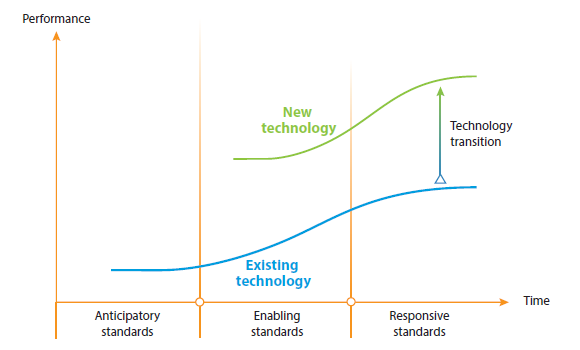The content of this page is derived from the ETSI publication ‘Understanding ICT Standardization: principles and practice’ by Dr. habil. Nizar Abdelkafi, Prof. Raffaele Bolla, Cees J.M. Lanting, Dr. Alejandro Rodriguez-Ascaso, Marina Thuns, Dr. Michelle Wetterwald
Standards and standardization activities can be effectively related to the technology life cycle, which consists of four stages: introduction, growth, maturity, and decline. There are three types of standards that can be used during these stages. Anticipatory standards are forward-looking and solve anticipated interoperability problems. As such, they can support the introduction phase of a technology. Supporting standards are developed during the growth phase and improvement of a technology or products to improve the robustness and scale of an agreed or dominant design. Responsive standards are created at the end of technology development, during the maturity and decline stages. Their goal is to pick up and document best practices.

Read more here.
